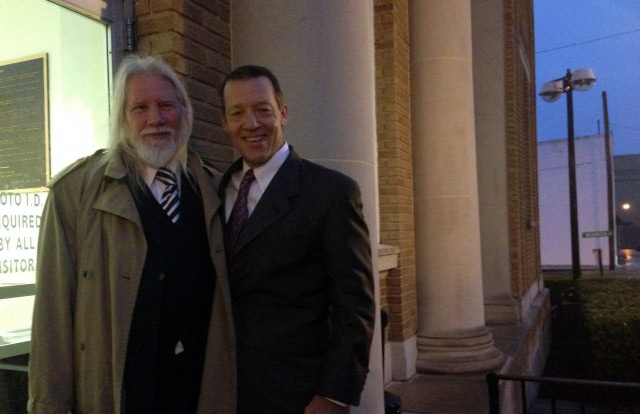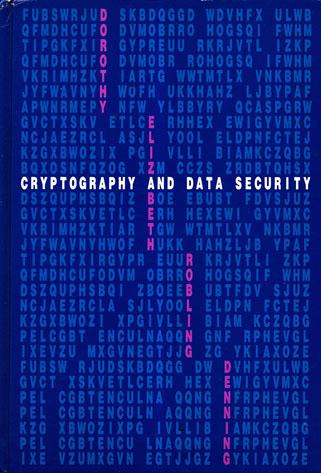Legendary cryptographer Diffie tried to stop the patent troll
 Patent trolls are becoming more and more arrogant lately. Taking advantage of the shortcomings of US law, they earn millions of dollars by filing lawsuits against ordinary companies and entrepreneurs. One of the latest examples was the activity of the company TQP Development, which made a claim to several hundreds of companies to use the patented cryptographically protected e-commerce scheme. The patent , in fact, describes the simultaneous use of SSL and RC4.
Patent trolls are becoming more and more arrogant lately. Taking advantage of the shortcomings of US law, they earn millions of dollars by filing lawsuits against ordinary companies and entrepreneurs. One of the latest examples was the activity of the company TQP Development, which made a claim to several hundreds of companies to use the patented cryptographically protected e-commerce scheme. The patent , in fact, describes the simultaneous use of SSL and RC4.Nearly 140 companies paid TQP Development for a total of more than $ 45 million. Among them are such giants as Amazon (paid $ 500 thousand) and Microsoft ($ 1 million).
Blackmail would go on and on, but the Newegg online store came on the scene. He refused to pay royalties and demanded consideration of the case in court.
As is known, such a principled approach costs companies a lot of money. Even if the case is won, the plaintiff does not compensate for legal costs (future legislation promises to eliminate this nonsense), which will almost certainly exceed the amount of payment under the proposed initially licensing agreement. So Amazon and Microsoft, among others, acted rationally and did not begin to seek consideration of a potentially winning case in court for the banal reason for cost savings. Newegg company went on principle.
Last Thursday the court hearings began. Newegg spoke on behalf of Lee Cheng, chief lawyer, and drew several witnesses.
')
The first witness was a cryptographer Ron Rivest, who, through videotaping, described how he invented the RC4 cipher while working at RSA Security in 1987, two years before the filing of the patent application TQP Development.
The second witness was former Microsoft CTO Ray Ozzie. He described how in 1988, Bill Gates demonstrated the Lotus Notes application. One of the Notes program developers Alan Eldridge (Alan Eldridge) personally flew to the court of Marshall (Texas) to tell how he implemented support for the RC4 cipher in Notes.
Unlike the experts who testify in court, Alan Eldridge did not receive any payment. He flew at his own expense out of a sense of “civil responsibility” to testify against an unfair patent. He didn’t even know who the lawsuit was against: answering one of the court’s questions, Eldridge answered: “I didn’t even hear about New Age until last Saturday”, causing the public to laugh in the hall.
On Friday, a “star” witness spoke at the trial - Whitfield Diffie, the legendary cryptographer himself. His goal was to prove to the court that the TQP Development patent describes a “clear and obvious” application of the technology, which is the basis for revoking the patent.

Whitfield Diffie and lawyer for Newegg
Whitfield Diffie is one of the co-authors of the Diffie-Hellman key exchange algorithm, which is widely used in cryptographic applications. Whitfield Diffie also participated in a large number of other developments, he is considered one of the founding fathers of modern asymmetric cryptography (public key systems), along with Rivest, Shamir, Adleman and others.
Diffie explained to the court that the TQP Development patent is not an invention at all. Asymmetric cryptography was simply necessary for the security of the Internet. During testimony, the judge asked a question:
- In this process, we have heard a lot about asymmetric cryptography. Do you know her?
- Yes, I am.
- How well are you familiar with asymmetric cryptography? - The judge asked a clarifying question.
“I invented her,” Diffie replied.
In 1976, Diffie, together with Stanford professor Hellman, published the research paper New Directions in Cryptography. The cover of this work Diffi brought and demonstrated in court.
Lawyer Newegg then showed the court a 1982 textbook "Cryptography and Data Security", which describes almost the same thing as in the TQP Development patent, including a pseudo-random number generator.

Despite attempts by TQP to disprove Diffie’s involvement in the invention of asymmetric cryptography based on the IEEE web page , the court is unlikely to heed the arguments of the claimant. The last day of public hearings will take place today, after which the jury will deliver a verdict. Let us hope that TQP Development and the parent company Jones and Erich Spangenberg will be defeated, and claims for payment of license fees will be canceled.
UPD 26.11. Unfortunately, the jury's verdict was in favor of the patent troll , although Newegg would pay $ 2.3 million instead of the required $ 5.1 million. The jury also recognized the patent as valid, despite Witfried Diffie’s testimony. Newegg intends to file an appeal. At the same time, it is known that similar trials against TQP were initiated by several other companies, including Google, LinkedIn and Sony. All of them will start in early 2014.
Source: https://habr.com/ru/post/203576/
All Articles